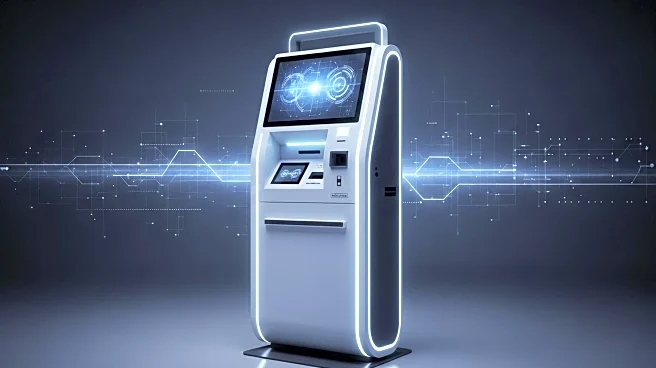What's Happening?
The Automated Retail & Kiosk Innovation Show, scheduled for December 10-12 in Tampa, Florida, will feature a panel discussion on the evolution of self-checkout technology. Industry experts Jeremy Cauble, Ray Friedrich, and Roberto De Angelis will discuss the current state and future of self-checkout kiosks, which have become prevalent in various sectors including supermarkets, pharmacies, and even zoos. Despite their widespread use, self-checkout technology is still considered to be in its infancy, with global installations expected to reach 2 million by 2029. The panel will explore challenges such as user experience inconsistency and personal customization limitations, while also highlighting growth drivers like labor cost reduction and customer demand for convenience.
Why It's Important?
The discussion at the Automated Retail & Kiosk Innovation Show is significant as it addresses the growing role of self-checkout technology in retail and other industries. As labor costs rise and consumer demand for faster, more convenient shopping experiences increases, self-checkout kiosks offer a solution that could transform the retail landscape. The technology's potential for mass adoption across various channels and industries could lead to significant shifts in how businesses operate, potentially reducing operational costs and enhancing customer satisfaction. Understanding the challenges and advancements in this technology is crucial for stakeholders aiming to leverage its benefits.
What's Next?
The panelists anticipate that within the next decade, self-checkout technology will become more automated and intuitive, overcoming current limitations. As the technology matures, it is expected to be widely adopted, with kiosks interacting with customers similarly to human cashiers. This evolution could lead to increased efficiency and reduced theft, addressing some of the current challenges. Businesses and industry leaders will likely continue to invest in and develop self-checkout solutions to meet consumer demands and improve operational efficiency.
Beyond the Headlines
The advancement of self-checkout technology raises ethical and cultural considerations, such as the impact on employment in retail sectors and the potential for increased surveillance and data collection. As these technologies become more integrated into daily life, discussions around privacy and data security will become increasingly important. Additionally, the shift towards automated retail solutions may influence consumer behavior and expectations, potentially leading to broader societal changes in how people shop and interact with businesses.









